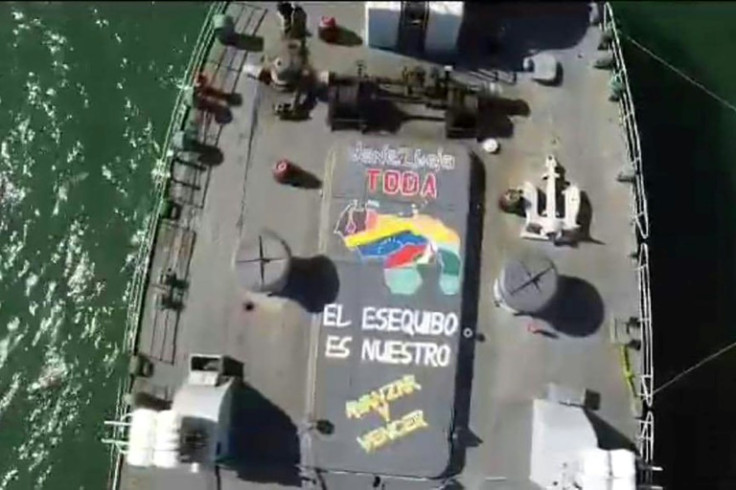
The Venezuelan government called the military drills of two U.S. planes in Guyana a "provocation" and said the country has "become a new colony" of the North American country.
"The Bolivarian Navy strongly rejects the reiterated provocations by the U.S. Southern Command and approved by the government of Guyana, which has become a new American Colony," said Venezuelan Defense Minister Vladimir Padrino López. He added that the country's defense systems are "activated against any attempt to breach the Venezuelan geographical space."
U.S. forces, on their end, had reported that "two F/A-18F Super Hornet jets, aboard the USS George Washington Aircraft Carrier" would conduct the drills "with the collaboration and approval of local authorities."
The statement comes amid a continued territorial dispute between the countries over the Essequibo, a region controlled by Guyana (and represents two thirds of its territory) that Venezuela claims as its own.
Venezuela has brought its claim to the forefront of regional diplomacy since holding a referendum last year (approved by an overwhelming majority) to take over the territory and create a Venezuelan province there. It has also accused the Georgetown government of "defying and provoking" Caracas by granting concessions to exploit the areas natural resources, particularly oil.
Despite recent signs of de-escalation with his Guyanese counterpart Irfaan Ali, Venezuelan President Nicolas Maduro said he doesn't really rule the country and is a puppet of the U.S. military and American oil company ExxonMobil, which actively operates in the area.
Maduro also claimed in April that the U.S. has built secret bases in the region. "They have set (U.S.) Southern Command bases, as well as the CIA to prepare aggressions," he said during a political rally. He went on to add that the alleged attacks would target "the people of Tumeremo," the city the government designated as regional capital.
So far there have not been any attacks nor clashes in the area nor the Essequibo as a whole, but Venezuelan authorities said in mid-April that the country will keep its armed forces deployed in its coast near the Atlantic until the dispute is solved in a way that is "satisfactory" to Caracas.
Venezuela has also recently increased its military presence along the border with Guyana, with a February report showing that the Maduro government moved light tanks, missile-equipped patrol boats and armored carriers.
It has also vowed a "forceful response" if oil drilling begins in the region's contested waters, following the discovery of massive reserves in the area in 2015. Last year, tensions reached higher levels as Guyana started auctioning off oil blocks in the region.
The U.S., however, has downplayed this military presence, saying that all movements seen have been of a "very small nature and size and scale and scope.
© 2025 Latin Times. All rights reserved. Do not reproduce without permission.





